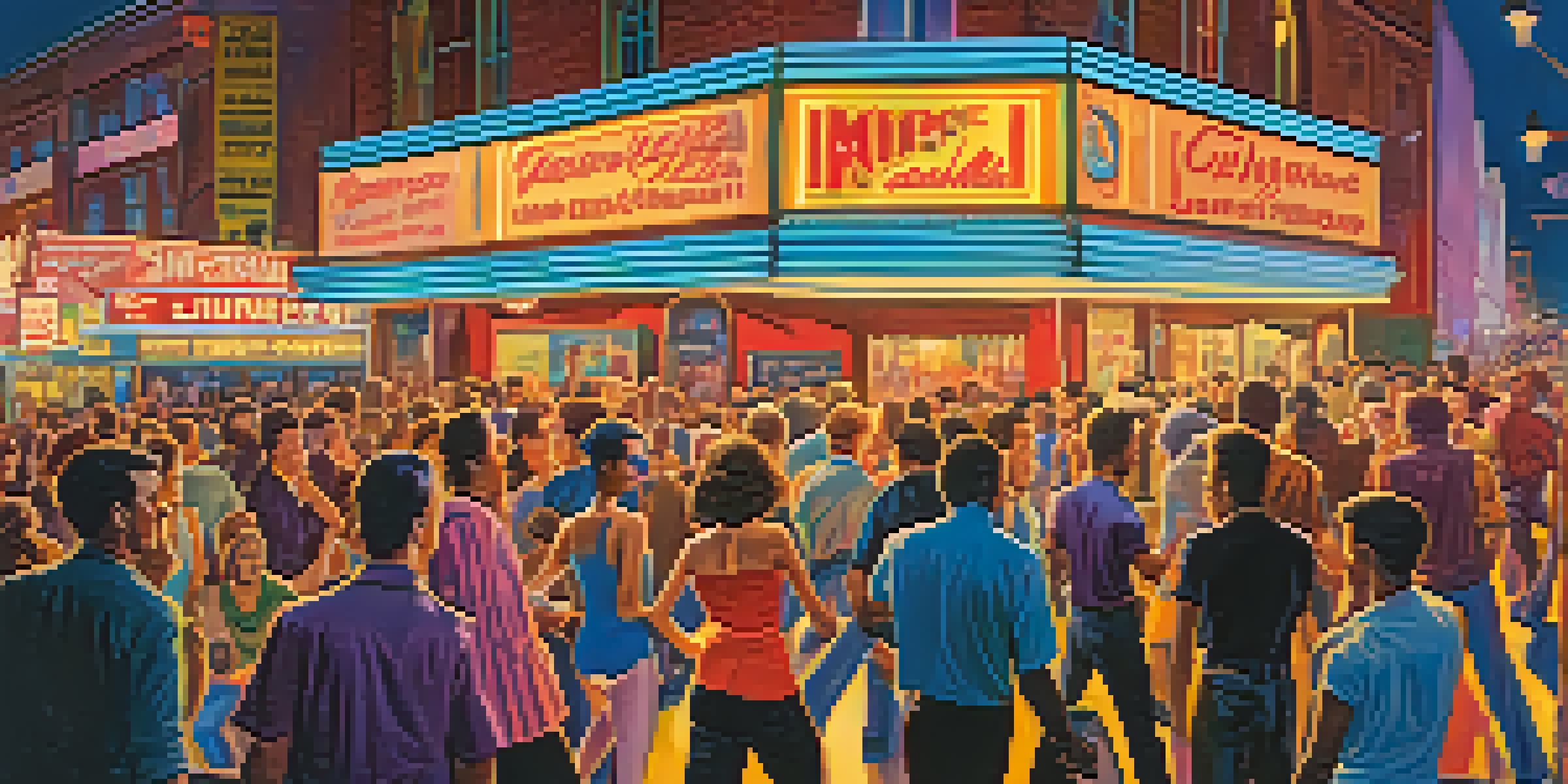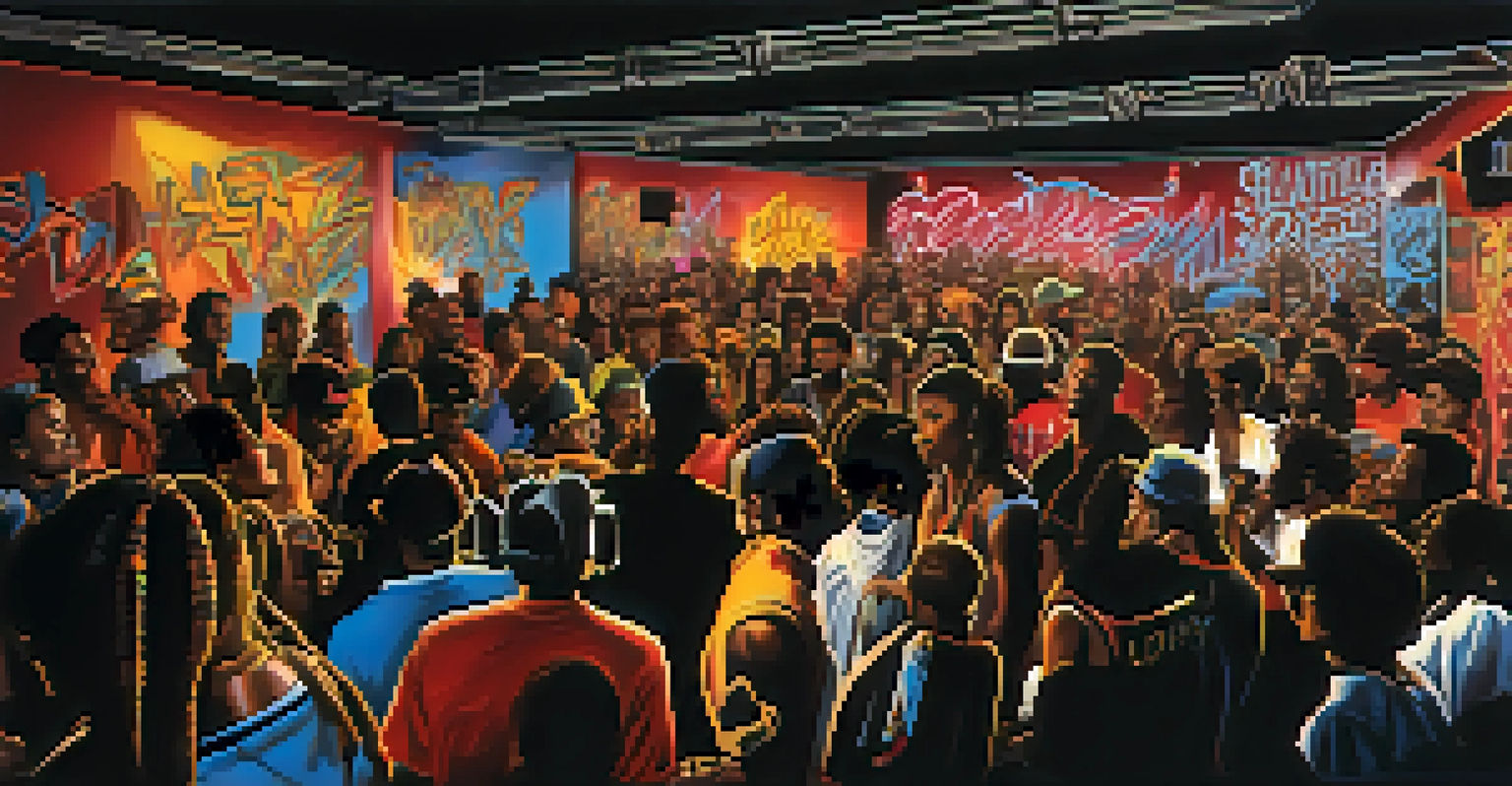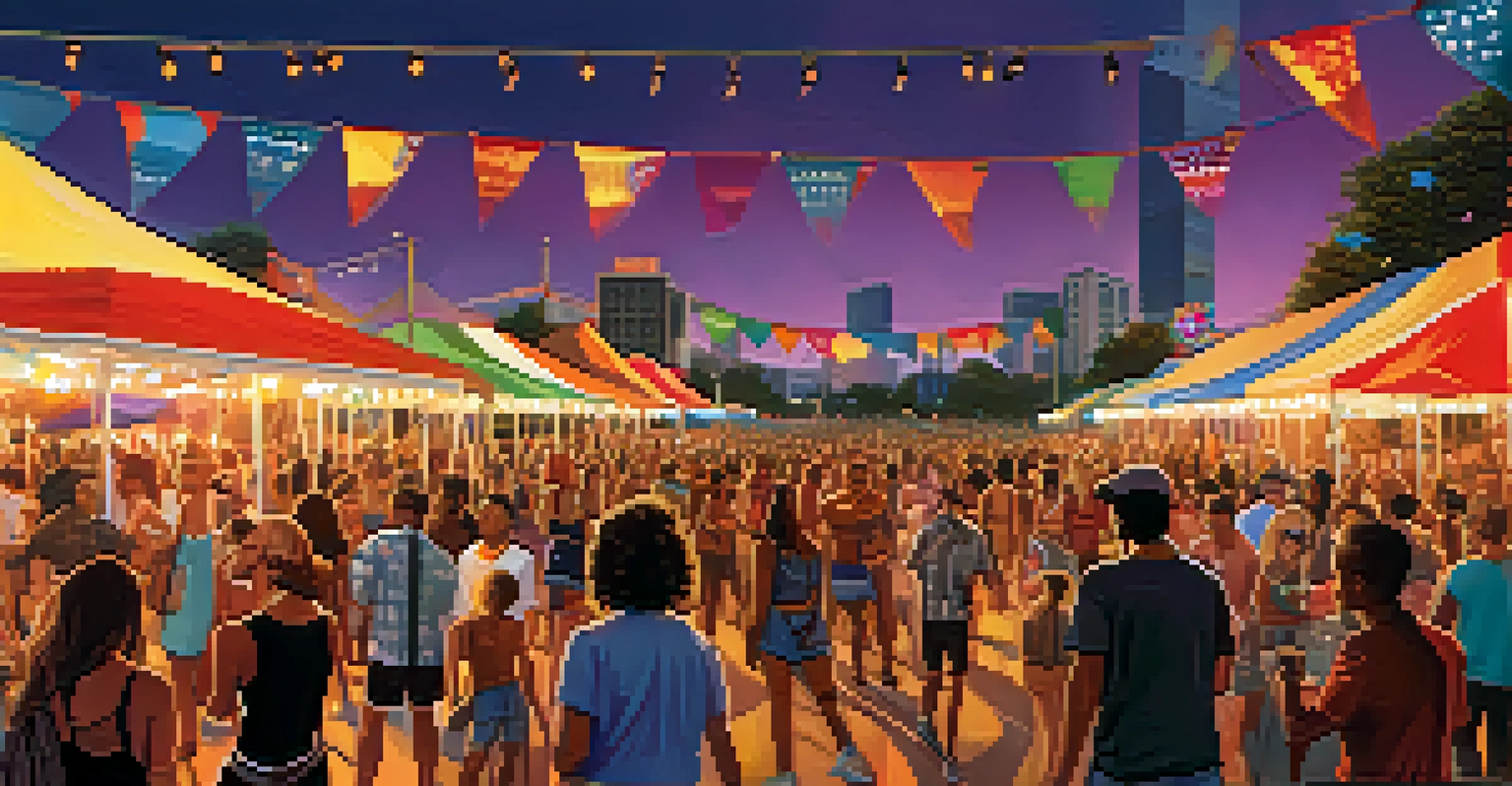The Evolution of Jacksonville's Music Scene: Past to Present

The Roots of Jacksonville's Music Scene in the 20th Century
Jacksonville's music scene has deep roots that can be traced back to the early 20th century. During this time, it became a melting pot for various musical styles, thanks in part to its strategic location as a transportation hub. Jazz, blues, and gospel music flourished in local clubs, with artists like Ray Charles drawing inspiration from the vibrant atmosphere.
Where words fail, music speaks.
The city's diverse population contributed to its rich musical tapestry, blending African American, Native American, and European influences. This cultural fusion laid the groundwork for a unique sound that would define Jacksonville's music scene for decades. The sounds of the past not only reflected the community's spirit but also resonated with broader American musical trends.
As we look back, it’s clear that Jacksonville was not just a backdrop but a vital player in the evolution of popular music. The early establishments, like the Ritz Theatre, became hotspots for live performances, showcasing local talent and helping to cultivate a sense of pride in the city's musical heritage.
The Rise of Rock and Roll in the 1960s and 70s
The 1960s and 70s marked a significant transformation in Jacksonville’s music scene, driven largely by the rise of rock and roll. Venues like the Jacksonville Coliseum and local bars became stages for both emerging and established artists. This era saw the birth of iconic bands, such as Lynyrd Skynyrd, who would go on to become synonymous with Southern rock.

As rock music exploded in popularity, Jacksonville embraced this new sound, hosting concerts that brought national attention to the city. Local radio stations began to support rock bands, amplifying their reach and fostering a thriving music culture. The rebellious spirit of rock music resonated with the youth, creating a vibrant community of music lovers.
Jacksonville's Musical Diversity
The city's music scene has evolved through a rich blend of genres, influenced by its diverse cultural heritage.
This period was not just about the music; it was about a cultural awakening in Jacksonville. The blend of rock with the city’s existing genres enriched the local scene and attracted a diverse audience, paving the way for future musical innovations.
Hip Hop and R&B Take Center Stage in the 1980s
The 1980s ushered in a new era for Jacksonville's music scene, with hip hop and R&B gaining significant traction. Artists began to emerge from the local neighborhoods, creating a distinctive sound that reflected their experiences and struggles. This was a time when the genre started to make its mark nationally, and Jacksonville was no exception.
Music can change the world because it can change people.
Local clubs and community events became hotbeds for hip hop culture, showcasing talent through freestyle battles and dance competitions. The connection between music and community was palpable, as these events not only entertained but also empowered local youth. This grassroots movement helped to solidify Jacksonville's place in the broader hip hop narrative.
As the decade progressed, the influence of R&B began to intertwine with hip hop, leading to collaborations that pushed musical boundaries. The vibrant nightlife and emerging talent created a unique blend that contributed to the city's ever-evolving soundscape.
The 1990s: A Fusion of Genres and New Venues
The 1990s were marked by a fusion of genres in Jacksonville, as the city's music scene became increasingly diverse. With the rise of alternative rock, punk, and ska, new venues such as The Edge and 1904 Music Hall opened their doors, providing platforms for local musicians to shine. This era was characterized by a DIY ethos, with bands often self-promoting and organizing their own shows.
The fusion of styles was not just a trend; it reflected the community's eclectic tastes and the influence of national music movements. Local bands began to incorporate elements from various genres, creating a sound that was distinctly Jacksonville. This blending of influences not only enriched the music scene but also attracted a broader audience.
Impact of Technology on Music
Advancements in technology have transformed how Jacksonville's artists create and share music, fostering a vibrant independent scene.
As more artists gained recognition, Jacksonville’s music scene began to capture the attention of record labels and industry professionals. The city became a breeding ground for talent, setting the stage for future success stories in the decades to come.
The 2000s: A Revival of Local Talent and Festivals
Entering the 2000s, Jacksonville experienced a revival of local talent that reinvigorated its music scene. Festivals like the Jacksonville Jazz Festival and the Welcome to Rockville Festival began to take shape, showcasing both local and national acts. These events not only celebrated music but also fostered a sense of community and pride among residents.
Local artists began to gain more visibility, with many leveraging social media to share their work. This digital shift allowed for a more direct connection between musicians and fans, changing the landscape of how music was consumed. The rise of platforms like MySpace and later, Bandcamp, provided a stage for local artists to gain recognition beyond the city limits.
The 2000s were about building bridges between generations of musicians, with older artists mentoring newcomers. This sense of camaraderie enriched the scene, creating a collaborative environment that encouraged creativity and innovation.
The Impact of Technology on Jacksonville's Music Scene
As we moved into the 2010s and beyond, technology began to play a pivotal role in shaping Jacksonville's music scene. Streaming services and social media transformed the way music was produced, distributed, and consumed. Artists could now reach global audiences, and local musicians began to explore new avenues for sharing their sound.
Music production software made it easier for aspiring artists to create high-quality recordings from home. This democratization of music creation led to a surge of independent artists in Jacksonville, each bringing their unique flair to the scene. The ability to connect with fans directly via social media platforms like Instagram and TikTok has further energized the local music community.
Community and Collaboration
A strong sense of community and collaboration among artists and local businesses continues to drive the growth of Jacksonville's music culture.
However, with this shift came challenges, including the need for artists to adapt to a rapidly changing industry. Despite these hurdles, Jacksonville's music scene has shown resilience, continuously evolving and embracing new trends while staying true to its roots.
The Present: A Thriving and Diverse Music Community
Today, Jacksonville's music scene is more vibrant and diverse than ever, encompassing a wide array of genres and styles. From indie rock to hip hop and everything in between, local artists are making their mark both regionally and nationally. Venues across the city continue to host live performances, creating opportunities for musicians to showcase their talents.
The sense of community remains strong, with collaborations and partnerships among artists, promoters, and local businesses. Events like the First Wednesday Art Walk not only highlight local talent but also foster connections within the creative community. This collaborative spirit is a testament to Jacksonville's commitment to nurturing its music scene.

As we look to the future, the potential for growth and innovation in Jacksonville's music scene is boundless. With an ever-evolving landscape and a dedicated community, the city is poised to continue being a significant player in the broader music industry.